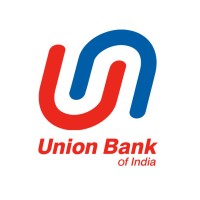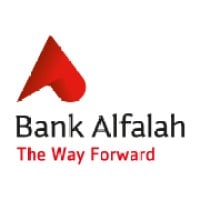Company Details
icici-bank
164,277
3,618,962
52211
icicibank.com
0
ICI_1472921
In-progress

ICICI Bank Company CyberSecurity Posture
icicibank.comICICI Bank is one of India’s leading private sector banks, offering a wide range of banking products and services to corporate, Small and Medium Enterprises (SME) and individual customers across the country. The Bank offers multi-channel touch points including branches, ATMs, mobile banking, internet banking, and phone banking. The Bank has a network of 6,742 branches and 16,277 ATMs and cash recycling machines across India, as at December 31, 2024. For any assistance on products and services, please call ICICI Bank’s customer care number 1800 1080. Disclaimer: The content herein is only for information and does not amount to an offer, invitation or solicitation to buy or sell, and is not intended to create any rights or obligations. It is also not intended for distribution to, or use by, any person in any jurisdiction where such distribution or use would be contrary to law or would subject ICICI Bank Limited (“ICICI Bank”) or its affiliate(s) to any licensing or registration requirements. Nothing contained herein is intended to constitute advice or opinion; please obtain professional advice before relying on any information contained herein. ICICI Bank disclaims any liability with respect to accuracy of information or any error or omission or any loss or damage incurred by anyone in reliance on the contents herein.
Company Details
icici-bank
164,277
3,618,962
52211
icicibank.com
0
ICI_1472921
In-progress
Between 800 and 849

 ICICI Bank Global Score (TPRM)
ICICI Bank Global Score (TPRM)XXXX

Description: Multinational ICICI Bank suffered from a data breach incident that exposed sensitive data, including financial information and personal documents of the bank’s clients. Bank account informationa, bank statements, credit card numbers, full names, dates of birth, home addresses, phone numbers, emails, personal identification cards, and resumes of workers and applicants were among the information that was exposed. Cybernews contacted ICICI Bank and CERT-IN, and the company fixed the issue.
Description: Several Indian banks have taken drastic steps in response to a security breach that may have compromised up to 3.25 million debit cards—or 0.5% of the approximately 700 million debit cards that Indian banks have issued. The financial institution is Hitachi Payment Services, a subsidiary of Hitachi Ltd. that oversees ATM network processing for Yes Bank Ltd., according to banking industry insiders. After that, the State Bank of India quickly disabled a few clients' debit cards, and it was currently replacing those cards to stop fraud. The top three private sector lenders, ICICI Bank, HDFC Bank, and Axis Bank, each stated in separate announcements that there may have been card account breaches following usage at non-bank ATMs. Additionally, certain consumers' debit cards are being reissued by Standard Chartered's Indian division.


No incidents recorded for ICICI Bank in 2025.
No incidents recorded for ICICI Bank in 2025.
No incidents recorded for ICICI Bank in 2025.
ICICI Bank cyber incidents detection timeline including parent company and subsidiaries

ICICI Bank is one of India’s leading private sector banks, offering a wide range of banking products and services to corporate, Small and Medium Enterprises (SME) and individual customers across the country. The Bank offers multi-channel touch points including branches, ATMs, mobile banking, internet banking, and phone banking. The Bank has a network of 6,742 branches and 16,277 ATMs and cash recycling machines across India, as at December 31, 2024. For any assistance on products and services, please call ICICI Bank’s customer care number 1800 1080. Disclaimer: The content herein is only for information and does not amount to an offer, invitation or solicitation to buy or sell, and is not intended to create any rights or obligations. It is also not intended for distribution to, or use by, any person in any jurisdiction where such distribution or use would be contrary to law or would subject ICICI Bank Limited (“ICICI Bank”) or its affiliate(s) to any licensing or registration requirements. Nothing contained herein is intended to constitute advice or opinion; please obtain professional advice before relying on any information contained herein. ICICI Bank disclaims any liability with respect to accuracy of information or any error or omission or any loss or damage incurred by anyone in reliance on the contents herein.


Union Bank of India is one of the leading public sector banks of the country. The Bank is a listed entity, and the Government of India holds 74.76 percent in Bank’s total paid-up capital. The Bank, having its headquarters at Mumbai (India), was registered on November 11, 1919 as a limited company. O
Welkom op het LinkedIn-account van ABN AMRO. We staan 24/7 klaar om jouw vragen te beantwoorden. Onze taak is altijd om de klant te ondersteunen op het moment dat het er echt op aankomt. Dat is onze verantwoordelijkheid. Dat maakt ons relevant. En wat er vandaag de dag toe doet voor de klant is de

Welcome to Huntington. Huntington Bancshares Incorporated is a $210 billion asset regional bank holding company headquartered in Columbus, Ohio. Founded in 1866, The Huntington National Bank and its affiliates provide consumers, small and middle-market businesses, corporations, municipalities, and

Bank Alfalah is one of the largest private Banks in Pakistan with a network of over 1100 branches in more than 200 cities across Pakistan with an international presence in Afghanistan, Bangladesh, Bahrain, and a representative office in the UAE. The Bank is owned and operated by the Abu Dhabi Group.

Regions Financial Corporation is a member of the S&P 500 Index and is one of the nation’s largest full-service providers of consumer and commercial banking, wealth management, and mortgage products and services. Regions serves customers across the South, Midwest and Texas, and through its subsidiary
Eu experimentei um novo jeito de me comunicar com você. Você usa o mundo digital para criar um universo totalmente seu e nesse novo universo eu acompanho você. Eu sei… Você é muito mais que digital. Eu olho para você e me vejo. Este é um dos motivos de eu estar aqui para conversar com você. Eu s

Сбер — крупнейший банк в России, поставщик надёжных технологических решений и один из ведущих финансовых институтов страны. Мы не боимся меняться и открывать новые горизонты, но в то же время остаёмся верными принципам, сформированным за нашу 180-летнюю историю. Такой подход позволяет нам создавать

Comerica Incorporated (NYSE: CMA) is a financial services company headquartered in Dallas, Texas, strategically aligned by the Business Bank, the Retail Bank, and Wealth Management. The Business Bank provides companies of all sizes with an array of credit and non-credit financial products and servic
Axis Bank is the third largest private sector bank in India. The Bank offers the entire spectrum of financial services to customer segments covering Large and Mid-Corporates, MSME, Agriculture and Retail Businesses. The Bank has a large footprint of 5000 domestic branches (including extension count
.png)
State Bank of India, ICICI, HDFC and other banks switch to .bank.in domains as per RBI mandate to boost cybersecurity and prevent online...
The Reserve Bank of India has instructed all banks to migrate their websites to the secure '.bank.in' domain by October 31, 2025.
Now, if you're going to open your bank's website, pay close attention, because the addresses of banking websites are no longer the same.
The Reserve Bank of India (RBI) has directed all banks to shift their official websites to the '.bank.in' domain, aiming to enhance...
Under the new rule, only RBI-regulated banks can register and use the '.bank.in' domain.
Indian banks must shift their net banking websites to the new '.bank.in' domain by October 31, 2025. This move by the Reserve Bank of India...
Under the new rule, only RBI-regulated banks can register and use the '.bank.in' domain — creating a verified, secure online identity system...
The digital landscape of Indian banking is undergoing a huge security-focused shift right now, as Reserve Bank of India's (RBI) directive...
The Tech Panda takes a look at recent tech launches. Fintech: ICICI Bank & Visa launch Corporate Sapphiro Forex Card for business travellers.

Explore insights on cybersecurity incidents, risk posture, and Rankiteo's assessments.
The official website of ICICI Bank is https://www.icicibank.com.
According to Rankiteo, ICICI Bank’s AI-generated cybersecurity score is 801, reflecting their Good security posture.
According to Rankiteo, ICICI Bank currently holds 0 security badges, indicating that no recognized compliance certifications are currently verified for the organization.
According to Rankiteo, ICICI Bank is not certified under SOC 2 Type 1.
According to Rankiteo, ICICI Bank does not hold a SOC 2 Type 2 certification.
According to Rankiteo, ICICI Bank is not listed as GDPR compliant.
According to Rankiteo, ICICI Bank does not currently maintain PCI DSS compliance.
According to Rankiteo, ICICI Bank is not compliant with HIPAA regulations.
According to Rankiteo,ICICI Bank is not certified under ISO 27001, indicating the absence of a formally recognized information security management framework.
ICICI Bank operates primarily in the Banking industry.
ICICI Bank employs approximately 164,277 people worldwide.
ICICI Bank presently has no subsidiaries across any sectors.
ICICI Bank’s official LinkedIn profile has approximately 3,618,962 followers.
ICICI Bank is classified under the NAICS code 52211, which corresponds to Commercial Banking.
Yes, ICICI Bank has an official profile on Crunchbase, which can be accessed here: https://www.crunchbase.com/organization/icici-bank.
Yes, ICICI Bank maintains an official LinkedIn profile, which is actively utilized for branding and talent engagement, which can be accessed here: https://www.linkedin.com/company/icici-bank.
As of November 27, 2025, Rankiteo reports that ICICI Bank has experienced 2 cybersecurity incidents.
ICICI Bank has an estimated 6,716 peer or competitor companies worldwide.
Incident Types: The types of cybersecurity incidents that have occurred include Breach.
Detection and Response: The company detects and responds to cybersecurity incidents through an third party assistance with cert-in, and containment measures with disabling debit cards, containment measures with reissuing debit cards..
Title: ICICI Bank Data Breach
Description: Multinational ICICI Bank suffered from a data breach incident that exposed sensitive data, including financial information and personal documents of the bank’s clients.
Type: Data Breach
Title: Security Breach at Indian Banks Compromising Debit Cards
Description: Several Indian banks have taken drastic steps in response to a security breach that may have compromised up to 3.25 million debit cards—or 0.5% of the approximately 700 million debit cards that Indian banks have issued. The financial institution is Hitachi Payment Services, a subsidiary of Hitachi Ltd. that oversees ATM network processing for Yes Bank Ltd., according to banking industry insiders. After that, the State Bank of India quickly disabled a few clients' debit cards, and it was currently replacing those cards to stop fraud. The top three private sector lenders, ICICI Bank, HDFC Bank, and Axis Bank, each stated in separate announcements that there may have been card account breaches following usage at non-bank ATMs. Additionally, certain consumers' debit cards are being reissued by Standard Chartered's Indian division.
Type: Data Breach
Attack Vector: ATM Network Processing
Motivation: Financial Gain
Common Attack Types: The most common types of attacks the company has faced is Breach.

Data Compromised: Bank account information, Bank statements, Credit card numbers, Full names, Dates of birth, Home addresses, Phone numbers, Emails, Personal identification cards, Resumes of workers and applicants

Data Compromised: Card account information
Systems Affected: ATM Network
Commonly Compromised Data Types: The types of data most commonly compromised in incidents are Bank Account Information, Bank Statements, Credit Card Numbers, Full Names, Dates Of Birth, Home Addresses, Phone Numbers, Emails, Personal Identification Cards, Resumes Of Workers And Applicants, and Card Account Information.

Entity Name: ICICI Bank
Entity Type: Financial Institution
Industry: Banking
Location: Multinational

Entity Name: Hitachi Payment Services
Entity Type: Financial Institution
Industry: Finance
Location: India
Customers Affected: 3.25 million

Entity Name: State Bank of India
Entity Type: Bank
Industry: Finance
Location: India

Entity Name: Yes Bank Ltd.
Entity Type: Bank
Industry: Finance
Location: India

Entity Name: ICICI Bank
Entity Type: Bank
Industry: Finance
Location: India

Entity Name: HDFC Bank
Entity Type: Bank
Industry: Finance
Location: India

Entity Name: Axis Bank
Entity Type: Bank
Industry: Finance
Location: India

Entity Name: Standard Chartered's Indian division
Entity Type: Bank
Industry: Finance
Location: India

Third Party Assistance: Cert-In.

Containment Measures: Disabling Debit CardsReissuing Debit Cards
Third-Party Assistance: The company involves third-party assistance in incident response through CERT-IN, .

Type of Data Compromised: Bank account information, Bank statements, Credit card numbers, Full names, Dates of birth, Home addresses, Phone numbers, Emails, Personal identification cards, Resumes of workers and applicants
Sensitivity of Data: High

Type of Data Compromised: Card Account Information
Number of Records Exposed: 3.25 million
Handling of PII Incidents: The company handles incidents involving personally identifiable information (PII) through by disabling debit cards, reissuing debit cards and .

Source: Cybernews
Additional Resources: Stakeholders can find additional resources on cybersecurity best practices at and Source: Cybernews.
Post-Incident Analysis Process: The company's process for conducting post-incident analysis is described as Cert-In, .
Most Significant Data Compromised: The most significant data compromised in an incident were bank account information, bank statements, credit card numbers, full names, dates of birth, home addresses, phone numbers, emails, personal identification cards, resumes of workers and applicants, , Card Account Information and .
Most Significant System Affected: The most significant system affected in an incident was ATM Network.
Third-Party Assistance in Most Recent Incident: The third-party assistance involved in the most recent incident was cert-in, .
Containment Measures in Most Recent Incident: The containment measures taken in the most recent incident was Disabling Debit CardsReissuing Debit Cards.
Most Sensitive Data Compromised: The most sensitive data compromised in a breach were dates of birth, personal identification cards, credit card numbers, bank statements, emails, home addresses, phone numbers, resumes of workers and applicants, full names, Card Account Information and bank account information.
Number of Records Exposed in Most Significant Breach: The number of records exposed in the most significant breach was 3.2M.
Most Recent Source: The most recent source of information about an incident is Cybernews.
.png)
Angular is a development platform for building mobile and desktop web applications using TypeScript/JavaScript and other languages. Prior to versions 19.2.16, 20.3.14, and 21.0.1, there is a XSRF token leakage via protocol-relative URLs in angular HTTP clients. The vulnerability is a Credential Leak by App Logic that leads to the unauthorized disclosure of the Cross-Site Request Forgery (XSRF) token to an attacker-controlled domain. Angular's HttpClient has a built-in XSRF protection mechanism that works by checking if a request URL starts with a protocol (http:// or https://) to determine if it is cross-origin. If the URL starts with protocol-relative URL (//), it is incorrectly treated as a same-origin request, and the XSRF token is automatically added to the X-XSRF-TOKEN header. This issue has been patched in versions 19.2.16, 20.3.14, and 21.0.1. A workaround for this issue involves avoiding using protocol-relative URLs (URLs starting with //) in HttpClient requests. All backend communication URLs should be hardcoded as relative paths (starting with a single /) or fully qualified, trusted absolute URLs.
Forge (also called `node-forge`) is a native implementation of Transport Layer Security in JavaScript. An Uncontrolled Recursion vulnerability in node-forge versions 1.3.1 and below enables remote, unauthenticated attackers to craft deep ASN.1 structures that trigger unbounded recursive parsing. This leads to a Denial-of-Service (DoS) via stack exhaustion when parsing untrusted DER inputs. This issue has been patched in version 1.3.2.
Forge (also called `node-forge`) is a native implementation of Transport Layer Security in JavaScript. An Integer Overflow vulnerability in node-forge versions 1.3.1 and below enables remote, unauthenticated attackers to craft ASN.1 structures containing OIDs with oversized arcs. These arcs may be decoded as smaller, trusted OIDs due to 32-bit bitwise truncation, enabling the bypass of downstream OID-based security decisions. This issue has been patched in version 1.3.2.
Suricata is a network IDS, IPS and NSM engine developed by the OISF (Open Information Security Foundation) and the Suricata community. Prior to versions 7.0.13 and 8.0.2, working with large buffers in Lua scripts can lead to a stack overflow. Users of Lua rules and output scripts may be affected when working with large buffers. This includes a rule passing a large buffer to a Lua script. This issue has been patched in versions 7.0.13 and 8.0.2. A workaround for this issue involves disabling Lua rules and output scripts, or making sure limits, such as stream.depth.reassembly and HTTP response body limits (response-body-limit), are set to less than half the stack size.
Suricata is a network IDS, IPS and NSM engine developed by the OISF (Open Information Security Foundation) and the Suricata community. In versions from 8.0.0 to before 8.0.2, a NULL dereference can occur when the entropy keyword is used in conjunction with base64_data. This issue has been patched in version 8.0.2. A workaround involves disabling rules that use entropy in conjunction with base64_data.

Get company history
















Every week, Rankiteo analyzes billions of signals to give organizations a sharper, faster view of emerging risks. With deeper, more actionable intelligence at their fingertips, security teams can outpace threat actors, respond instantly to Zero-Day attacks, and dramatically shrink their risk exposure window.
Identify exposed access points, detect misconfigured SSL certificates, and uncover vulnerabilities across the network infrastructure.
Gain visibility into the software components used within an organization to detect vulnerabilities, manage risk, and ensure supply chain security.
Monitor and manage all IT assets and their configurations to ensure accurate, real-time visibility across the company's technology environment.
Leverage real-time insights on active threats, malware campaigns, and emerging vulnerabilities to proactively defend against evolving cyberattacks.




